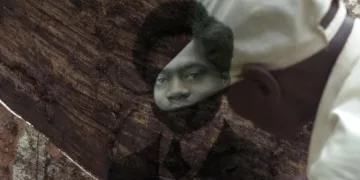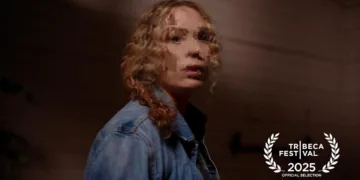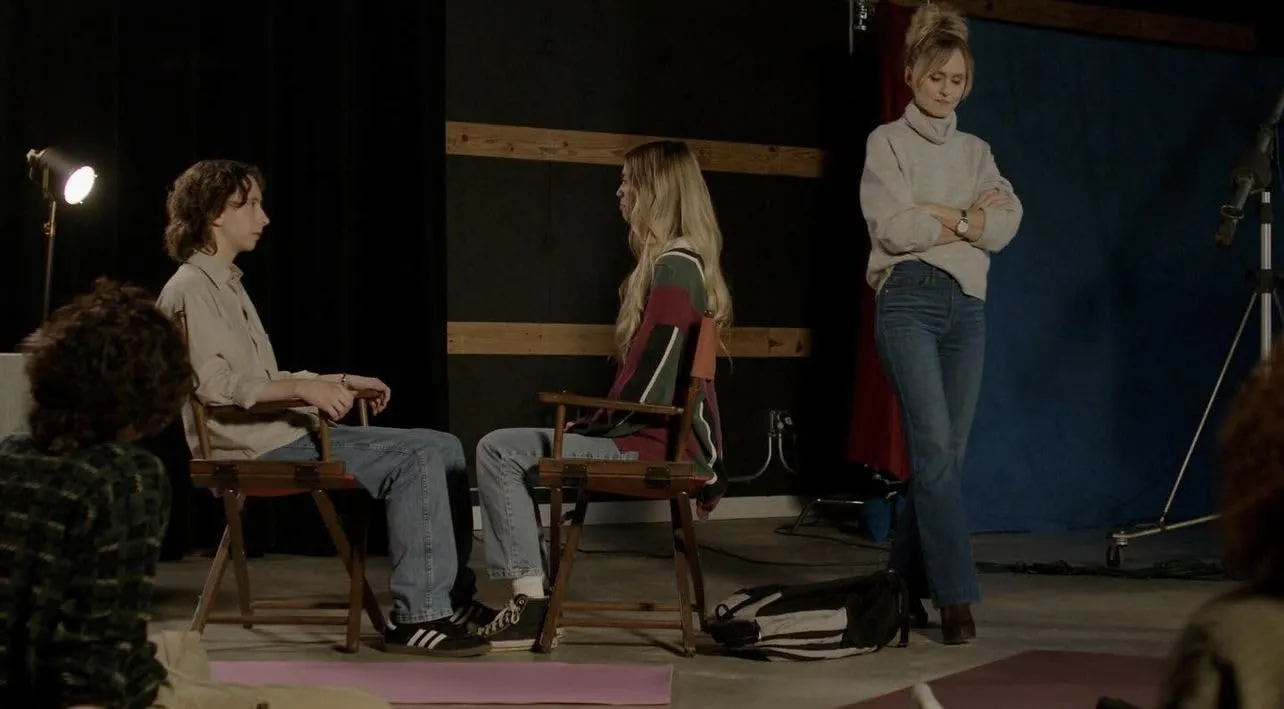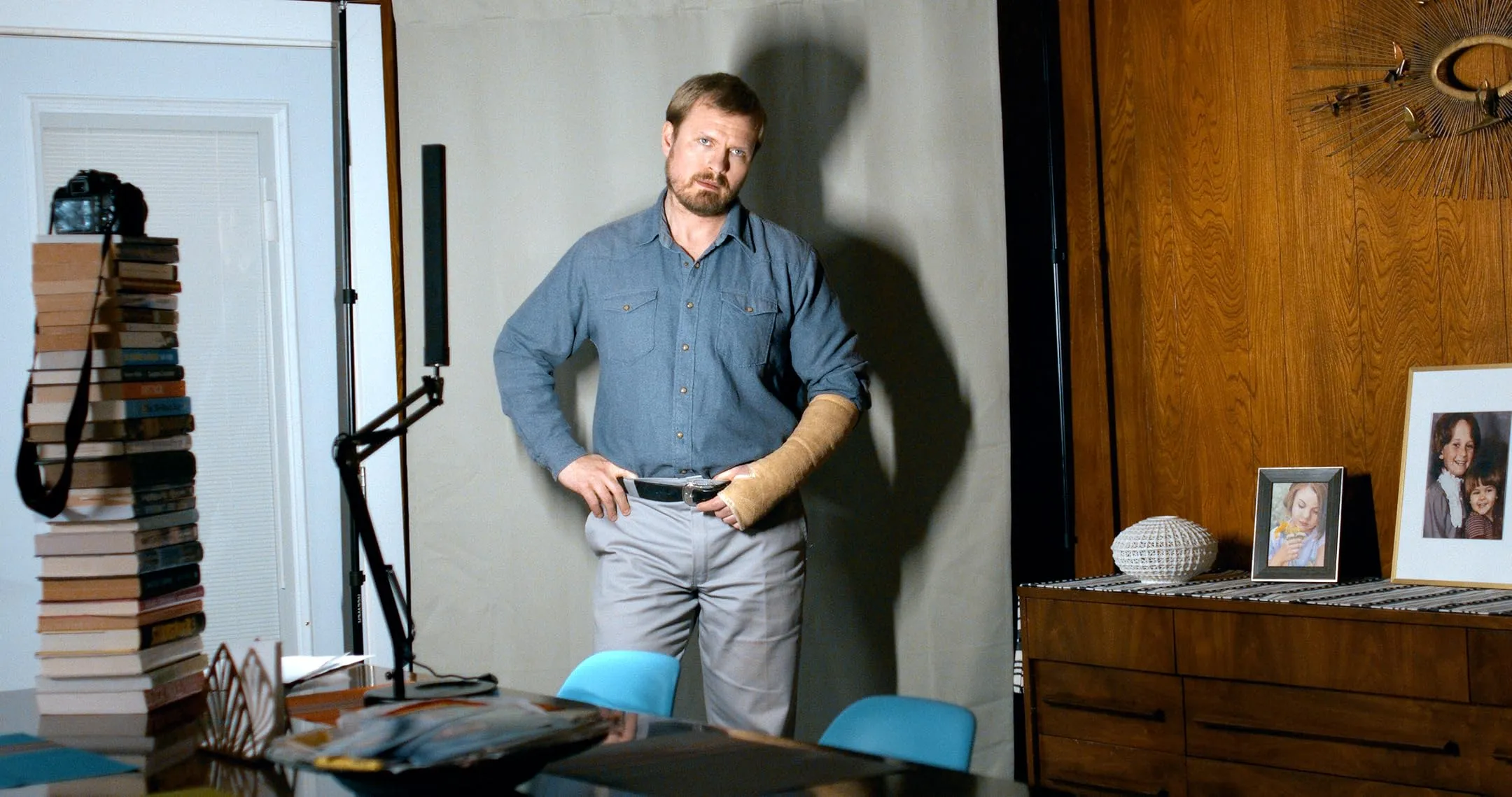Mags Malloy is a case study in the slow erosion of potential. Nearing fifty, she operates within the precarious ecosystem of the modern creative class: a single mother, a non-tenured acting professor, a life sustained by a patchwork of responsibilities that leave little room for artistry.
The ghost at this fraught banquet is her own past. A decade ago, she was the face of “Sunspots,” an independent film that enjoyed a flicker of Sundance heat. That film’s poster now hangs in her office, less a trophy and more an artifact from a different civilization, a reminder of a trajectory that flatlined.
We meet her in the midst of the actor’s contemporary ritual of humiliation—the self-taped audition—a solitary performance for an unseen, indifferent client. Into this meticulously managed state of quiet desperation crashes her brother, Merritt.
He arrives unannounced, a chaotic force of nature who threatens to knock over the entire, fragile structure of her life. He is the variable she cannot account for, an agent of pure disorder injected into a life defined by its rigid control.
The Chaos Agent and the Curator
The film’s central pillar is the stunningly realized friction between the two siblings. Mags is the weary curator of her own stalled life, and Heather Kafka’s performance is a masterwork of tension held in the shoulders and a resentment that flashes behind the eyes.
She views Merritt not just as an annoyance but as an existential threat, a walking personification of jeopardy. And in many ways, he is. Justin Arnold plays Merritt with a boundless, almost manic energy, a man-child still fluent in the regional twang his sister long ago traded for a more neutral theatrical palate.
His history is a collection of fleeting jobs—rodeo clown, firewatcher—and his current passion is for the guitar, a pursuit he attacks with the same gusto he applies to everything. His cheerfulness is a thin veil over a deep-seated desperation.
The conflict boils over when Merritt, in a fit of inspiration, decides he too can be an actor and brazenly enrolls in Mags’ own class. He disrupts her sanctuary, charming her students and violating the last space where she held unambiguous authority, turning her professional life into a stage for their unresolved familial drama.
Ghosts of Park City Past
Beyond the family turmoil, Leads presents a brutally honest audit of the acting profession, stripping away any romanticism to expose the stark mechanics of the grind. This is a document about the 99% of SAG-AFTRA, for whom a career is a matter of endurance, not accolades.
The financial insecurity and the psychological toll of a dream deferred are the film’s true subjects. This reality is given a face in Taylor Betts, Mags’ “Sunspots” director who translated his indie credibility into a lucrative horror franchise.
He is the personification of the diverging path, the success that magnifies her sense of failure. His arranged visit to her college is freighted with a decade of unspoken history. In a scene of masterful subtlety, Mags meets him at his hotel, where he orchestrates a video call with his new star.
The gesture is a work of art in polite power dynamics, simultaneously paying tribute to Mags’ past talent while cementing her status as a relic. It is a quiet, perfect execution of keeping someone in their place.
Catharsis by Implosion
Merritt’s function is not merely to disrupt; it is to demolish. His chaotic intervention is the destructive force required for any meaningful reconstruction. He is the catalyst that shatters Mags’ stasis, forcing a confrontation with the deep-seated pain that has defined their relationship since she left him behind with an overbearing father.
The explosive climax is not about a career breakthrough but a personal one. The arguments and messes he generates finally ignite a necessary fire in Mags. Her transformation is an internal reclamation of agency, a pivot from weary resignation to a kind of cathartic self-assertion.
The picture suggests that personal growth is not a tidy, linear progression. Sometimes it requires a full system failure, an implosion that clears the way for something new to be built from the wreckage. It is a story about the liberation found not in achieving an old dream, but in finally letting it go.
Leads premiered at the Tribeca Film Festival on June 6, 2025.
Full Credits
Director: Bryan Poyser
Writers: Justin Arnold, Heather Kafka, Bryan Poyser
Cast: Heather Kafka, Justin Arnold, Macon Blair, Kat Adams, Jordan Banks, Ellis Bradley, John Field Brown, Ethan Cruz
The Review
Leads
A sharp, unflinching look at professional disappointment and familial friction, Leads succeeds on the strength of its two central performances. It trades plot for a deeply authentic character study, examining the quiet indignities of a creative life that has stalled. While its intimate scale may not resonate with all, the film's emotional honesty is its greatest asset, presenting a painfully recognizable portrait of what happens when the spotlight fades and real life sets in. It’s a compelling and subtly powerful piece of work.
PROS
- Exceptional, nuanced lead performances from Heather Kafka and Justin Arnold.
- An authentic and unglamorous depiction of the acting profession.
- A complex and believable sibling dynamic at its core.
- Intelligent script with sharp, insightful dialogue.
CONS
- The deliberate, character-focused pacing might feel slow to some.
- Its small, intimate scale limits its scope.


















































